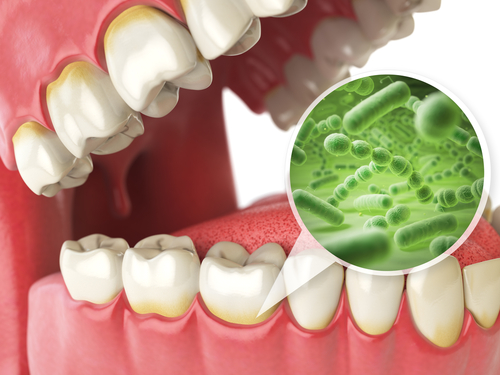Resource Library
Start Reading

Have you been experiencing an ongoing toothache? Even a mild sensitivity can grow into a serious condition when left untreated. A tooth infection, also known as a dental abscess, requires immediate attention by a specialist. If you have been experiencing tooth pain, then you should ask yourself whether you have any of these other tooth infection symptoms.
The symptoms of tooth infection generally go from bad to worse, which is why waiting is never an effective strategy. Most abscesses will start with a simple case of tooth decay or gum disease. The term tooth decay refers to the presence of harmful bacteria in the teeth. In essence, having dental decay is already a type of bacterial infection. As the infection grows, the symptoms will become more severe. You might start out with sensitivity to hot or cold temperatures and pain when you bite into food. When a pocket of pus has formed, your symptoms will become more intense, possibly including:
These symptoms indicate an advanced stage of tooth infection and must be treated immediately. When scheduling your appointment with the dentist, please explain your symptoms so that we can give you an emergency time slot.
 How Does a Tooth Infection Develop?
How Does a Tooth Infection Develop?A tooth infection occurs when decay, periodontal disease, or a dental fracture makes the tooth vulnerable to bacteria. Once the bacteria has entered the soft tissue of the tooth, or pulp, a periapical abscess begins to develop. Bacteria enter through the cavity or crack in the tooth and spread, affecting the blood vessels, nerves, and connective tissue. Eventually, the infection will reach down into the jaw and other areas of the head and neck.
Even if the abscess ruptures and the pain has decreased, you still need dental treatment. Only a qualified endodontist can perform the treatment necessary to restore you to full oral health.
 Depending on the stage of the abscess, different approaches may be used in treatment. These may include:
Depending on the stage of the abscess, different approaches may be used in treatment. These may include:
Prevention is always the best medicine in dentistry. The good news is that there are steps you can take to avoid developing a dental infection in the future. Here are the most effective prevention methods:
Whether you’re experiencing tooth infection symptoms currently or want to avoid this painful condition in the future, we encourage you to schedule an appointment at Penn Dental Family Practice. Our endodontic specialists are experienced, highly skilled professionals who provide specialized treatment for dental infections. To plan your visit, please call our offices at 215-898-PDFP(7337).